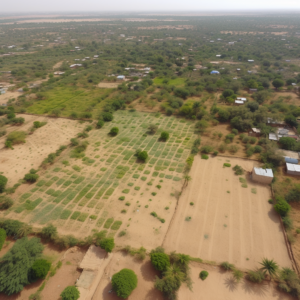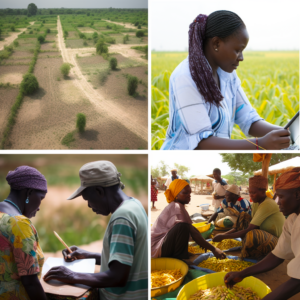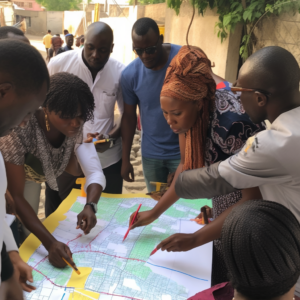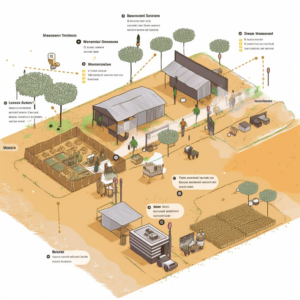Research methodology
Our project employs a holistic and transdisciplinary research methodology, combining scientific methods with participatory approaches to understand and transform agroecological food systems in the Sahel region. This research methodology is structured around four key elements:

Territorial diagnostics
We start by conducting a comprehensive territorial diagnosis, which encompasses the analysis of the socio-economic, environmental, and governance contexts. This enables us to identify the key actors, initiatives, and power dynamics at play, as well as the factors influencing the transition towards more sustainable agroecological food systems.

Interdisciplinary research approach
To address the complexity of agroecological transitions, we adopt a truly interdisciplinary perspective, integrating insights from fields such as agronomy, ecology, sociology, political science, and economics. This comprehensive approach allows us to generate system knowledge, target knowledge, and transformation knowledge, which in turn inform the development of transformative pathways and action plans.

Participatory and inclusive processes
Our methodology emphasizes the importance of involving a wide range of stakeholders, including local communities, farmers, government agencies, NGOs, and the private sector, in the research process. We use deliberative platforms and innovative participatory tools, such as arts-based methods, to foster collective decision-making, co-design transformative pathways, and facilitate knowledge exchange.

Living labs and iterative feedback loops
To test the practical application of our findings, we establish living labs in selected pilot areas where agroecological interventions are implemented, monitored, and evaluated. We maintain constant and iterative feedback loops between theory and practice, ensuring that the generated knowledge is continuously fed back into the research process, and our strategies are refined and adapted based on emerging insights and lessons learned.
By combining rigorous scientific research with participatory and inclusive processes, our methodology allows us to generate robust, context-sensitive, and actionable knowledge that can drive the transition towards sustainable agroecological food systems in the Sahel region and beyond.

